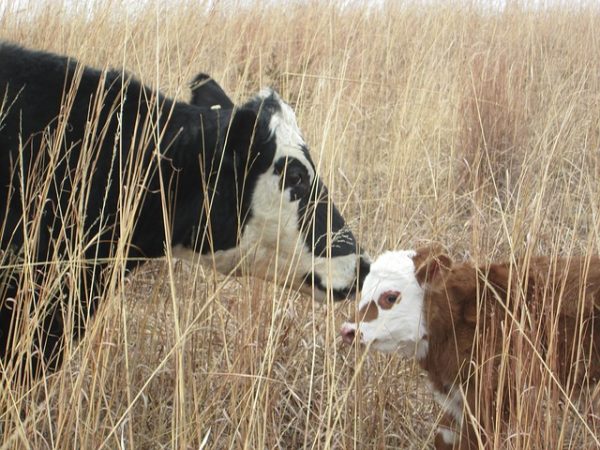Do animals have feelings? A new study by the University of British Columbia study says yes, having found that dairy calves do, in fact, have and express feelings.
The study was authored by Ph.D. candidate Benjamin Lecorps and co-authored by Marina von Keyserlingk and Daniel Weary. It was funded by a Discovery Grant that was awarded to von Keyserlingk from the Natural Sciences and Engineering Research Council of Canada.
The authors hoped to look at the individual animal as opposed to dairy calves as a whole. Von Keyserlingk, who led the research team, wanted to look at individual personality differences to make sure that all animals were being treated as well as they could be given the conditions that they were in on a farm.
“Sometimes we are tempted to see only the herd, even though this herd consists of different individuals who cope differently with stressful events,” said von Keyserlingk. “It’s important to consider the individual’s perspective, because even if conditions are good, on average, some animals may still suffer.”

“To gauge optimism and pessimism, the researchers set up an experiment involving 22 calves. Before they started the experiment, they trained the calves to understand which of their choices would lead to a reward,” reads a public release of the study. “In the training, each calf entered a small pen and found a wall with five holes arranged in a horizontal line, two-and-a-half feet apart. The hole at one end contained milk from a bottle, while the hole at the opposite end contained only an empty bottle and delivered a puff of air in calves’ faces. The calves learned quickly which side of the pen held the milk reward.”
Once the calves were used to this arrangement, changes were made to gauge different reactions. For example, milk would instead be placed in an intermediate hole, between the two sides of the pen. Calves showed optimism if they were willing to try the intermediate hole, even if it was near the location where they had before received an empty bottle and a puff of air. Calves who showed pessimism, however, wouldn’t try the intermediate hole, regardless of the reward, presumably because of its proximity to a potentially negative experience.
“The study also assessed fearfulness through standard personality tests that monitor how calves react to unfamiliar situations, such as the presence of a stranger or a foreign object. Fearfulness and pessimism turned out to be closely related.”
The research aims to make the lives of farmed animals less traumatic and stressful. “The next step in our research will be to understand what type of rearing conditions help ensure that an individual animal has a good life,” von Keyserlingk explained. “For example, more pessimistic calves may require different types of housing and management than we currently provide.”


